What we do
Our goal is to maintain up to date evidence-based pathways that account for the diverse range of settings in which health care is provided in India - from home visits by community health workers in rural hamlets to advanced “super specialty” hospitals in urban India.
Our Story
The Community Science Alliance is a network of community based health care organizations, technology companies, and physician scientists from India and the US, committed to advancing evidence-based medicine in all clinical settings in India. The network came together in 2021 to address the lack of reliable and sound scientific guidelines for COVID-19 management across rural and urban India. Publishing widely in leading scientific journals and the Indian media, we contributed to making COVID-19 treatment guidelines in India more in line with what was feasible, realistic and affordable, without compromising scientific rigor. We have now expanded our mandate to training a generation of clinicians in critical appraisal, evidence-based practice and innovation.
What We Do
The CSA leverages cutting-edge clinical advances, digital technology and task-sharing to improve evidence-based clinical care delivery. At each level of healthcare delivery, from the general practitioner’s clinic to a tertiary care hospital, CSA provides AI-assisted decision support tools to clinicians to guide diagnostic and therapeutic choices based on available resources, population demographics, local epidemiology, availability and affordability. Our clinical pathways are unique among decision-support tools because they are hyper-contextualized to the local environment, allowing clinicians to order tests, prescribe medications and guide referrals based on what is actually available, feasible and scientifically sound.
What We Do
The CSA leverages cutting-edge clinical advances, digital technology and task-sharing to improve evidence-based clinical care delivery. At each level of healthcare delivery, from the general practitioner’s clinic to a tertiary care hospital, CSA provides AI-assisted decision support tools to clinicians to guide diagnostic and therapeutic choices based on available resources, population demographics, local epidemiology, availability and affordability. Our clinical pathways are unique among decision-support tools because they are hyper-contextualized to the local environment, allowing clinicians to order tests, prescribe medications and guide referrals based on what is actually available, feasible and scientifically sound.
Our Approach
Clinical practice in high-income settings is informed by guidelines, enabling protocolized, standardized workflows that are safe and evidence-based. Through a rigorous development process that combines critical appraisal of local and global guidelines and analysis of local availability of diagnostics and therapeutics, the CSA continues to develop guidelines that are specific to the practice setting and resources available.
These guidelines, combined with local epidemiological, demographic and clinical data, where available, allow for AI-powered decision support tools to guide clinical care and public health decisions. This hyper-contextualized knowledge is made available through personalized apps, podcasts, and fellowships, sustaining a community of practitioners that inform and maintain the guidelines.
Our Approach
Context-informed
Clinical practice in high-income settings is informed by guidelines, enabling protocolized, standardized workflows that are safe and evidence-based. Through a rigorous development process that combines critical appraisal of local and global guidelines and analysis of local availability of diagnostics and therapeutics, the CSA continues to develop guidelines that are specific to the practice setting and resources available.
Data driven
These guidelines, combined with local epidemiological, demographic and clinical data, where available, allow for AI-powered decision support tools to guide clinical care and public health decisions.
Resources
This hyper-contextualized knowledge is made available through personalized apps, podcasts, and fellowships, sustaining a community of practitioners that inform and maintain the guidelines.
Our Approach
Clinical practice in high-income settings is informed by guidelines, enabling protocolized, standardized workflows that are safe and evidence-based. Through a rigorous development process that combines critical appraisal of local and global guidelines and analysis of local availability of diagnostics and therapeutics, the CSA continues to develop guidelines that are specific to the practice setting and resources available. These guidelines, combined with local epidemiological, demographic and clinical data, where available, allow for AI-powered decision support tools to guide clinical care and public health decisions. This hyper-contextualized knowledge is made available through personalized apps, podcasts, and fellowships, sustaining a community of practitioners that inform and maintain the guidelines.
Our Story
The Community Science Alliance is a network of community based health care organizations, technology companies, and physician scientists from India and the US, committed to advancing evidence-based medicine in all clinical settings in India. The network came together in 2021 to address the lack of reliable and sound scientific guidelines for COVID-19 management across rural and urban India. Publishing widely in leading scientific journals and the Indian media, we contributed to making COVID-19 treatment guidelines in India more in line with what was feasible, realistic and affordable, without compromising scientific rigor. We have now expanded our mandate to training a generation of clinicians in critical appraisal, evidence-based practice and innovation.
What We Do
The CSA leverages cutting-edge clinical advances, digital technology and task-sharing to improve evidence-based clinical care delivery. At each level of healthcare delivery, from the general practitioner’s clinic to a tertiary care hospital, CSA provides AI-assisted decision support tools to clinicians to guide diagnostic and therapeutic choices based on available resources, population demographics, local epidemiology, availability and affordability. Our clinical pathways are unique among decision-support tools because they are hyper-contextualized to the local environment, allowing clinicians to order tests, prescribe medications and guide referrals based on what is actually available, feasible and scientifically sound.
Our Approach
Clinical practice in high-income settings is informed by guidelines, enabling protocolized, standardized workflows that are safe and evidence-based. Through a rigorous development process that combines critical appraisal of local and global guidelines and analysis of local availability of diagnostics and therapeutics, the CSA continues to develop guidelines that are specific to the practice setting and resources available. These guidelines, combined with local epidemiological, demographic and clinical data, where available, allow for AI-powered decision support tools to guide clinical care and public health decisions. This hyper-contextualized knowledge is made available through personalized apps, podcasts, and fellowships, sustaining a community of practitioners that inform and maintain the guidelines.
The importance of contextualized evidence-based medical practice
The Indian stroke guidelines have a section on endovascular clot retrieval in acute ischaemic stroke. However, as of 2020, India had approximately 200 neurointerventionalists for a population for 1.5 million, with a procedure cost of 500,000 INR. This is not realistic.
Current Indian guidelines are aspirational.
Ideal – The Indian stroke guidelines have a section on endovascular clot retrieval in acute ischaemic stroke.
In practice – As of 2020, India had approximately 200 neurointerventionalists for a population of 1.5 million, with a procedure cost of 500,000 INR. This is not realistic.
A 40-year-old man with chest pain.
Ideal – Would undergo point of care troponin testing and EKG twice within four hours.
In rural India – Test options are often only accessible at urban and peri-urban secondary or tertiary facilities located hours and various modes of transportation away from the patient’s home.
Acute adult diarrheal disease.
Ideal – Simple fecal lab test and treatment.
In rural India – Tests not commonly available as part of primary care and current care pathways lead to inappropriate antibiotic usage in cases where readily available oral rehydration solutions alone would suffice.
A woman with a urinary tract infection.
Ideal – Easily treated via a mobile application and a quick trip to the pharmacy.
In rural India – Patient must often jostle on a crowded bus for hours to then wait in line to see a physician and obtain the necessary medications, all while undergoing discomfort and even humiliation.
Team
CSA is a collaboration between community-based organizations, frontline clinicians, and leading scientists from India and the Indian diaspora.
Senior Leadership
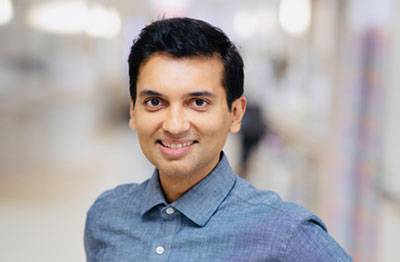
Dr. Shitij Arora
Associate Professor In Medicine at Albert Einstein College Of Medicine, New York
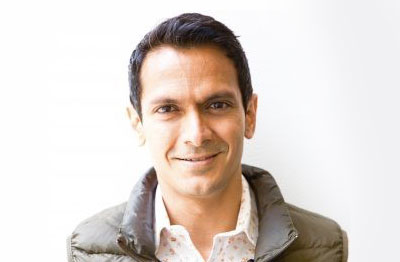
Dr. Satchit Balsari
Associate Professor of Emergency Medicine at Harvard Medical School, Beth Israel Deaconess Medical Center. Director, India Digital Health Network, Mittal Institute
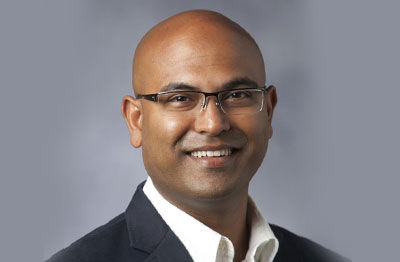
Dr. Manoj Mohanan
Creed C. Black Professor of Public Policy and Senior Associate Dean for Faculty and Research in the Sanford School of Public Policy, Duke University
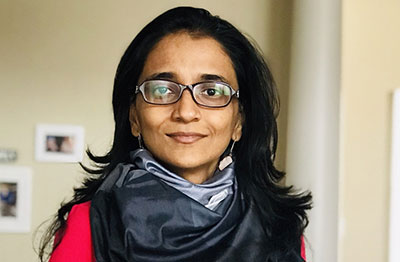
Dr. Charuta Mandke
Professor & Head, Department Of Ophthalmology, Dr. R.N. Cooper Medical College & Hospital, Mumbai
Researchers
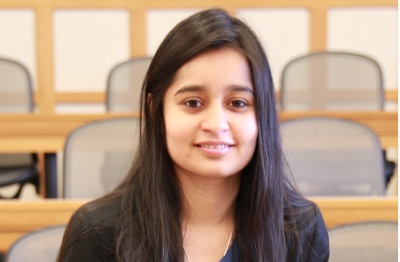
Shubhangi Bhadada
Senior Research Associate
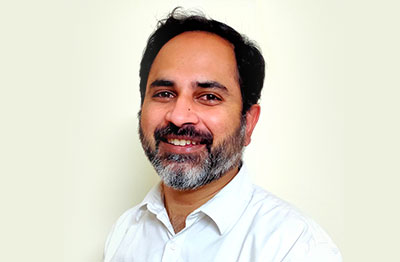
Dr. Verghese Thomas
Senior Research Associate (Consultant)
Advisors
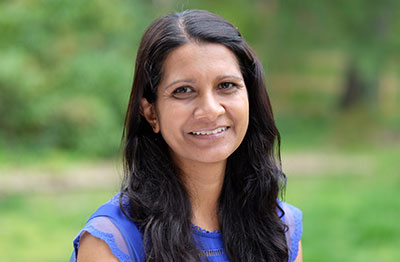
Dr. Amita Sudhir
Associate Professor Of Emergency Medicine at University Of Virginia, Residency Director
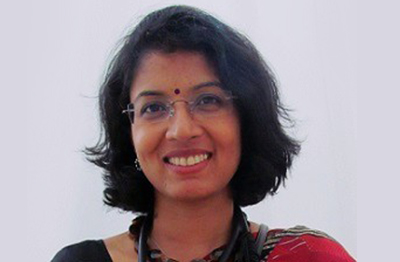
Dr. Rajani Bhat
Pulmonologist & Palliative Medicine Physician
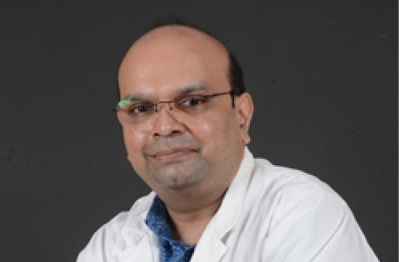
Dr. Tony Raj
Professor of Physiology, Dean, St. John’s Medical Research Institute, India
